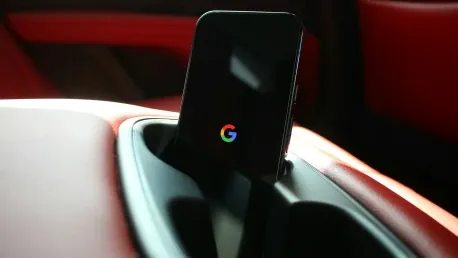The highly anticipated launch of the Google Pixel 9a has encountered an unexpected delay, causing much disappointment among potential buyers and tech enthusiasts. The primary reason for the delay has been attributed to an overheating issue, particularly affecting the area around the camera. This issue was first brought to light by a leaker on X, sparking widespread speculation and concern. Google initially cited a “component quality issue,” leading many to believe it was a hardware problem. However, it remains uncertain whether the overheating issue stems from a hardware defect or if it can be resolved with a software update.
Addressing the Overheating Problem
The Pixel 9a’s overheating problem has been the subject of extensive scrutiny, given its potential impact on the device’s performance and user experience. Reports indicate that the overheating is most pronounced near the camera, which could affect other functions dependent on the camera module. Despite the ambiguity surrounding whether the cause is hardware-related, there is cautious optimism that a software patch could mitigate or completely resolve the issue. This speculation stems from Google’s history of addressing similar problems through post-launch updates, though the exact effectiveness of such a fix remains to be seen.
The leaker who brought attention to this matter has a mixed track record, casting some doubt on the credibility of the claims. However, the veiled reference to Google in the leaker’s advisory not to “Google it” strongly suggests that the Pixel 9a is indeed the device in question. This level of conjecture has not deterred dedicated followers of the Pixel series, though potential buyers are now exercising a degree of caution. The industry’s response to these revelations highlights the importance of rigorous quality control and the challenges manufacturers face in ensuring their devices meet user expectations.
Impact on Sales and Market Expectations
Sales of the Pixel 9a, initially poised for a strong start, have been put on hold until April, pending the anticipated software fix. This delay gives potential buyers more time to consider their options, particularly in light of the Pixel 9a’s limitations. Unlike its more advanced counterparts, the Pixel 9a does not feature certain high-end attributes such as AI tools and Satellite SOS functionality. These omissions may influence consumer decisions, especially for those who prioritize these advanced features in their smartphones.
On the other hand, the Pixel 9a is not without its merits. It boasts a larger battery compared to the Pixel 9 Pro XL, offering potentially longer usage times. Additionally, it shares the same powerful chipset as the more expensive models in the series, ensuring robust performance and efficient multitasking capabilities. The more affordable price point of the Pixel 9a serves as a significant draw for cost-conscious consumers who still seek a reliable and capable device.
Ultimately, the delay and its underlying issues serve as critical points of consideration for prospective buyers. Those willing to overlook the potential for initial overheating problems may find the Pixel 9a an appealing option. However, individuals requiring more advanced features or immediate reliability may opt to explore other devices in the market.
Looking Ahead
The eagerly awaited release of the Google Pixel 9a has been unexpectedly delayed, much to the dismay of hopeful buyers and tech aficionados. The delay has been primarily attributed to an overheating problem, especially around the camera area. This issue came to public attention when it was revealed by a leaker on X, igniting considerable speculation and concern among consumers and industry watchers. Initially, Google cited a “component quality issue,” which led many to suspect a hardware defect. Despite these speculations, it remains unclear whether the overheating problem is indeed a hardware flaw or if it could potentially be addressed with a software update. This uncertainty has left many in the tech community puzzled, with no definitive resolution in sight. The delay, coupled with ambiguous statements from Google, has only fueled further curiosity and concern about the actual cause and the potential timeline for resolution. The situation remains a hot topic as enthusiasts await more concrete information.









